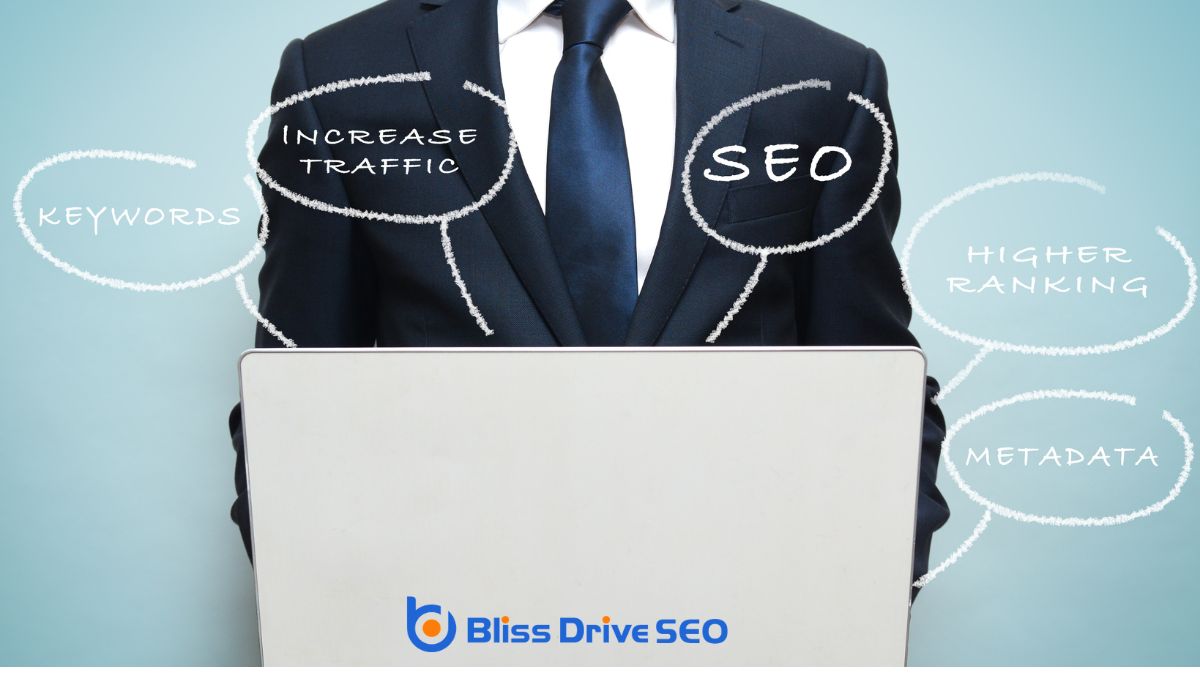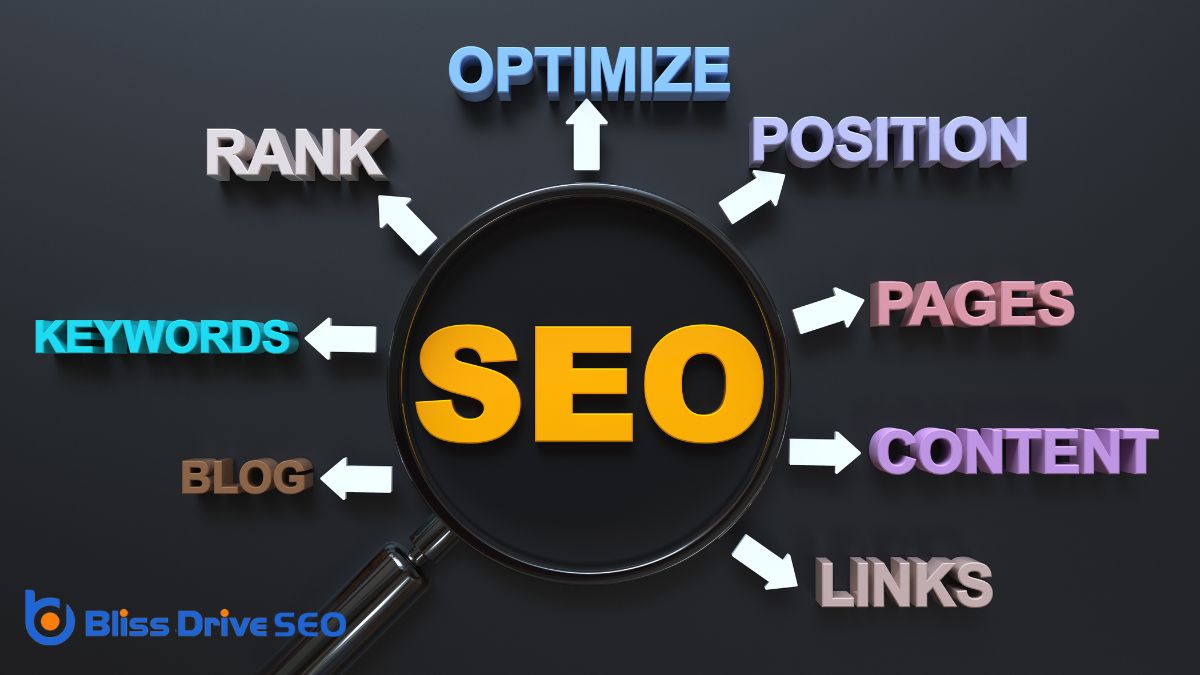Digital Marketing Services
Learn More About Us

When contemplating whether to hire someone for your SEO, it's essential to weigh the advantages against doing it yourself. You might be considering if the expertise of a professional can truly transform your website's visibility and rankingsThe position at which a website appears in the SERP.. While DIY approaches can be cost-effective, they often come with risks and missed opportunities. A specialist could offerThe specific product or service being promoted by affiliates. tailored strategies and insights that align with your business goals. But how do you determine if the investment is worthwhile and if it aligns with your current needs and resources? Let's explore what factors should influence your decision.
Understanding the basics of SEO is fundamental if you want to successfully navigate the digital landscape. At its core, SEO, or Search Engine Optimization, involves optimizing your website so that search engines like Google can easily find, index, and rank it. This means ensuring your site appears in relevant search results, which can drive more traffic and potential customers to your business. SEO isn't just about keywordsWords or phrases that users type into search engines to find information.; it's about creating a user-friendly experience, producing high-quality content, and ensuring your site is technically sound.
You'll want to start by grasping the significance of keywords. These are the words and phrases people type into search engines. By researching and using the right keywords in your content, you can connect with your target audience more effectively. But remember, keyword stuffingOverloading a page with keywords to manipulate search engine rankings. is a no-go—it's about relevance and context.
Next, consider on-page SEOOptimization techniques performed directly on the website, including content and HTML source code., which involves optimizing individual pages on your site. This includes using descriptive URLs, creating compelling meta titles and descriptions, and ensuring your content is valuable and engaging. Off-page SEOOptimization actions taken outside the website, primarily involving backlinks and social media., such as building backlinksLinks from other websites pointing to your website, crucial for SEO. from reputable sites, also plays an essential role in boosting your site's credibility. Understanding these elements lays the groundwork for effective SEO strategies.

Before diving into hiring someone for SEO, you need to evaluate your specific needs and objectives. Start by asking yourself what you aim to achieve with SEO. Are you looking to increase organic trafficVisitors who come to a website through unpaid search engine results., improve local search visibility, or boost your website's conversion rateThe percentage of visitors who complete a desired action, such as making a purchase or filling out a...? Identifying your goals will help you understand where to focus your efforts.
Next, assess your current SEO performance. Use tools like Google AnalyticsA web analytics service offered by Google that tracks and reports website traffic. or Google Search ConsoleA tool by Google that helps monitor and maintain your site's presence in search results. to gather data about your website's traffic, keywords, and ranking. This information gives you a clear picture of what's working and what needs improvement.
Consider your in-house resources. Do you have a team with SEO expertise, or is it an area where you're lacking? If your team is inexperienced, you might need external help to tackle complex strategies like link buildingThe process of acquiring backlinks from other websites. or technical SEOOptimizing the server and website structure to improve search engine crawling and indexing..
Having a specialist's touch in SEO can significantly transform your online presence. With their specialized knowledge, they can effectively optimize your website to rank higher in search engine results. This means more visibility, more traffic, and, ultimately, more potential customers. A specialist understands the ever-evolving algorithms and can adapt strategies to maintain your site's competitiveness.
By hiring a specialist, you save time and energy that you can invest in other aspects of your business. SEO requires continuous monitoring, analysis, and tweaking. Letting a professional handle, it ensures it's done efficiently and correctly, without the trial and error you might experience doing it yourself.
Moreover, specialists bring a wealth of experience and can offer insights into the best practices for your specific industry. They'll conduct thorough keyword researchThe process of finding and analyzing search terms that people enter into search engines., making sure your content speaks directly to your target audience. They can also perform technical audits, fixing issues that might hinder your site's performance.
In essence, an SEO specialist can provide a detailed strategy tailored to your business goals. This boosts your brand's credibility and trustworthiness in the eyes of both search engines and users, leading to sustained growth and success.
When deciding between in-house SEO and outsourcing, you'll need to weigh cost and resource allocation. Consider whether you have the internal expertise and skill level needed for effective SEO or if an external team might offer better proficiency.
Additionally, think about the flexibility and control each option provides, ensuring it aligns with your business goals.
Deciding between hiring an in-house SEO specialist or outsourcing the work often hinges on cost and resource allocation. When you bring someone in-house, you're committing to a full-time salary, benefits, and possibly training. This can be a substantial investment, especially for smaller businesses. On the flip side, an in-house specialist can focus solely on your business, tailoring strategies to your specific needs. They're always available for quick adjustments and can integrate seamlessly into your team.
Outsourcing, however, might be more cost-effective initially. You can negotiate contracts based on your specific needs and budget, paying only for the services you require. This flexibility can be a game-changer if you're working with limited resources.
Agencies often have access to the latest tools and technologies, which can be costly if you were to invest in them yourself.
Consider the long-term resource allocation, too. In-house teams require ongoing training and development to stay updated with SEO trends. Outsourcing, on the other hand, might involve less direct management but requires clear communication. Ultimately, your decision should reflect your business's financial capabilities and strategic goals.
Balancing cost and resource allocation naturally leads to factoring in the proficiency and skill level of your SEO efforts. When deciding between in-house and outsourcing, you need to contemplate the depth of knowledge required for effective SEO.
In-house teams can offer intimate familiarity with your brand and industry, which might give them an advantage for tailored strategies. However, their expertise might be limited if you don't invest in ongoing training and development.
On the other hand, outsourcing to an SEO agency usually grants access to a team of specialists with diverse skills who stay updated with the ever-evolving SEO landscape. These professionals often have experience across various industries, allowing them to implement strategies quickly and effectively. You're not just hiring one person's skills but a whole team's collective know-how.
However, the effectiveness of outsourcing depends on your choice of agency. It's essential to vet potential agencies thoroughly, ensuring they have a proven track record. You should look for transparency in their methods and the ability to align with your goals. This way, you'll leverage their expertise to enhance your SEO performance without the burden of training an internal team.
Your selection between in-house and outsourced SEO significantly impacts the flexibility and control you have over your strategies. When you choose an in-house team, you're more hands-on with your SEO efforts. You can pivot quickly, adapt to changes, and align strategies with your business goals without lengthy discussions. You're at the helm, setting priorities and directions as needed. Plus, having team members deeply involved in your company culture ensures that the strategies mirror your brand's voice.
On the flip side, outsourcing your SEO can result in less direct control. You'll need to clearly convey your objectives to make sure the agency comprehends your vision.
However, outsourcing can offer flexibility regarding resources. Agencies often have access to the latest tools, diverse skill sets, and industry insights that might be costly for an in-house team.
Ultimately, it's about balancing your desire for control with the flexibility and expertise you can acquire from outsourcing. If you seek direct oversight and quick adaptability, in-house might be the way to go. But if you're seeking a wide range of skills and resources, consider outsourcing.
When considering professional SEO services, it's important to understand the different pricing models available and how they align with your needs.
You'll want to assess the value of your investment by comparing the costs with the potential benefits to your business. This approach helps guarantee you make informed decisions that maximize your budget and enhance your online presence.
Understanding the costs associated with professional SEO services is crucial for any business looking to enhance its online presence. Various pricing models can help you budget effectively and get the best return. Let's break down the common ones.
First, there's the hourly rate model. If you choose this, you pay for the time an expert dedicates to your project. It's flexible, allowing for adjustments as your needs change, but costs can add up quickly if your project requires extensive work.
Next, consider the monthly retainer. This is a popular choice, providing consistent support and predictable costs. You pay a monthly fee for ongoing SEO services, making it ideal for long-term strategies. However, make sure you understand what's included to avoid unexpected charges.
Project-based pricing is another option. Here, you pay a fixed price for a specific set of tasks. It's great for tackling particular issues but may lack ongoing support once the project concludes.
Lastly, there's performance-based pricing. You pay based on the results achieved, like increased rankings or traffic. This model can be attractive, but it requires defining clear, measurable outcomes to guarantee fairness for both parties.
Choosing the right pricing model is just the start; what's ultimately important is securing you get value for your investment in SEO. It's not just about how much you spend but about the returns you see. When evaluating the value, consider these key factors:
Investing in SEO is about more than just financial cost; it's about securing a partner who can drive results and contribute to your business's success. Prioritize value, not just price, and you'll likely see a solid return on your investment.
Weighing the costs against the benefits is significant when considering professional SEO services. You might be wondering if the expense is justified. Professional SEO services can range from hundreds to thousands of dollars per month, depending on the complexity of your needs. While this might seem steep, consider the potential return on investment. Effective SEO can increase your website's visibility, drive traffic, and ultimately boost sales. The key is to make sure that you're getting value for your money.
When evaluating costs, think about what you're getting in return. A professional SEO service often includes keyword research, on-page optimizationImproving individual webpages to rank higher and earn more relevant traffic in search engines., link building, and regular analyticsThe systematic computational analysis of data or statistics to gain insights and support decision-ma... reports. These elements require expertise and time—resources you mightn't have in abundance. By outsourcing to a professional, you gain access to their knowledge and tools, potentially saving you time and avoiding costly mistakes.
However, it's important to have a clear understanding of your goals and expectations. Communicate these with potential SEO professionals to ensure alignment. Consider the impact of not investing in SEO, like missing out on potential customers. Weigh these factors carefully to make an informed decision that aligns with your business goals.
When you decide to tackle SEO on your own, you might underestimate the complexity involved. Search engine algorithms are intricate and ever-changing, requiring a deep understanding and constant adaptation. Without expertise, you could inadvertently make mistakes that harm your website's ranking rather than improve it.
Here's what you might face:
Understanding these risks helps clarify why DIY SEO mightn't be the best route. It requires a significant investment of time and effort, often without guaranteed success. This doesn't mean it's impossible, but it's vital to weigh these risks carefully before diving in. Remember, successful SEO is about precision and adaptability, not just enthusiasm.

After recognizing the potential pitfalls of DIY SEO, it becomes evident why hiring a professional can be a game-changer for your business. However, finding the right SEO professional requires a strategic approach. Start by defining your business goals and what you want to achieve with SEO. This clarity will help you communicate your vision effectively to potential candidates.
Next, research thoroughly. Look for SEO professionals or agencies with a proven track record. Check their websites, client testimonials, and case studiesIn-depth analyses of specific instances or examples to highlight success stories or lessons learned..... Don't hesitate to ask for references or examples of past work. A reputable professional should be transparent about their methods and willing to share their success storiesA feature on platforms like Instagram and Facebook where users can post photos and videos that disap....
Interview potential candidates. Ask them about their strategies, tools, and how they keep up with the ever-changing SEO landscape. A good SEO professional should be proactive, detail-oriented, and enthusiastic to explain complex concepts in simple terms. Effective communication is key, as you'll work closely together.
As you approach the final stage of selecting an SEO professional, focus on aligning their expertise with your business objectives to ensure a successful partnership. Start by evaluating their understanding of your industry. They should grasp your target audience and competitors to tailor strategies that match your goals. Communication style is crucial, too. Are they clear and responsive? You want someone who keeps you informed and can explain technical details in plain language.
To make an informed decision, consider these three essential factors:
In the end, hiring an SEO professional can be a game-changer for your business. By evaluating your needs and weighing the pros and cons, you can decide if outsourcing SEO aligns with your goals. Remember, experts bring valuable skills and insights that can boost your online presence and save you time. If you want to avoid pitfalls and focus on growth, finding the right SEO partner might just be the smart move you need to make.
